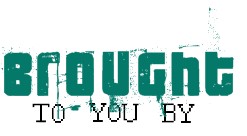PPR Presents Late to the Party: Judgement

 f I were to liken Ryu ga Gotoku Studio’s Yakuza series to a mixed drink, I would compare it to the sweet, yet effectively potent combination of Rum and Coke. It has all the thrills, and action you could ever want, while maintaining an accessible sense of pacing that can synchronize with just about anyone’s rhythm.
f I were to liken Ryu ga Gotoku Studio’s Yakuza series to a mixed drink, I would compare it to the sweet, yet effectively potent combination of Rum and Coke. It has all the thrills, and action you could ever want, while maintaining an accessible sense of pacing that can synchronize with just about anyone’s rhythm.
I can’t say the same thing out of the studio’s newest release, however; Judgment is more like Whiskey and Coke—a mixture that commands time and patience the moment you press your lips to the glass. Toting itself as a spiritual successor to Yakuza, Judgement throws a twist on the crime-drama formula from Toshihiro Nagoshi that empathizes new Detective-focused dynamics, encouraging observational skills and deduction from players instead of relying on the trademark brute-force that the world of Kamurcho is famous for offering.
While the novelty of the concept is admittedly hampered by strict pacing that drags on the early hours of Judgment through an annoying slog, the game eventually opens up into one of the most fulfilling experiences from the developer yet, consistently rewarding the commitment it demands a slower-than-usual pace that Ryu ga Gotoku design is known for.
Seeing as how this is the first western release of a Ryu ga Gotoku spinoff that doesn’t have a direct connection to the Dragon of Dojima himself, it should be noted that there’s no need to be familiar with the Yakuza property before booting this game up. There’s no risk of spoiling the property for anyone who’s hasn’t played, or finished Kiryu’s story because Judgment is a self-contained title that takes place within the world of Kamurcho, and it tirelessly labors at carving an identity of itself within the famous setting.

This new “not”-sequel places you into the shoes of Takayuki Yagami, a former disgraced Lawyer, now Private Eye, who stumbles upon a deadly mystery turned conspiracy that not only threatens Kamurcho, but all of Japan. While the stakes are just as high as what you’d expect out of the Studio, the characterization of the title’s cast, and their development are wildly different, and that’s honestly a good thing.
Yagami is certainly different from Ryu ga Gotoku’s signature protagonist, sure, but he’s sadly not as appealing as he is either, at least at first glance anyway. His cocky spirit, and holier-than-thou pretension is starkly different from the humility of the stoic gangster, but I’d also be lying if I didn’t point out the all-too-obvious parallels between Yagami and Kiryu as well, like their similar senses of cynicism and pride—he’s admittedly underwhelming in the introductory hours.
Thankfully, not long after the end of the first act, do players earn the chance to see the depth of Yagami’s personality as the side cases begin to reveal themselves—and like a diamond caked in dirt, the upstart Private Eye starts gradually picks up some traction after you hit streets for a while.
Unlike a certain Yakuza, players will begin to see immediate development with the detective as he steadily accepts the need to rely on his comrades for support—a far cry from the typical character trope of carrying the weight of the world of on the back of the hero’s shoulders in their journey. Judgment really shows Yagami off at his best when you stray off the beaten path into the side-cases he can work, and the jobs he takes on as an agent-for-hire who’ll take on beats too chintzy for Johnny-Law at just pennies to the dollar. Sending Yagami to work with the natives on streets is rewarding enough that it plays into being a necessity more so than a curious charity, which in itself makes him a satisfyingly refreshing palate cleanser to the solemn Dragon. Narrative building aside though, gameplay places a heavy emphasis on being a force within the Kamurcho community, only the difference is that players won’t have the same opportunities for money and experience the way they did in Yakuza.
Whether the mission calls for stealthy stalking, sharp eavesdropping, or some keen visuals for those brutal moments of “I-Spy”, Judgement paces you through a glut of endeavors that will payout in “small potatoes” before getting to that good meat—it’s a fairly heavy grind. Side-Stories are labeled as “Cases” here, and their availability is determined by either the completion of other cases, or the reputation you’ve garnered as a Private Eye from the people of Red District. Reputation is fostered through the fulfillment of the side-content, and to Judgement’s credit, a lot of it is genuinely intriguing by comparison to the rest of the series. Where most of the Yakuza games can break up the action with a bevy of mini-games like Pocket Racer or Cabaret Club management, Judgement opts for some bizarre additions that highlight the youth culture its setting stems from. Distractions range anywhere from competing in the local Virtual Reality obstacle course, racing remote control Drones throughout the city skyline, or even crowdfunding project off your smartphone that can be utilized in the games. Completing these distractions is what ultimately opens up these opportunities, which, while satisfying, for the most part, all demand a level of commitment that might put off those who just need to get whatever edge they're looking for to climb the main campaign.

Not all of these side-quests are a welcome addition though as the social aspects of Judgment’s dating mechanic are a little more troubling than they have any right to be. During his quest to solve a mass-murder turned conspiracy, the budding detective will get the opportunity to pursue romantic interests that he can maintain relationships with, dates, and all—with multiple women at once. The feature would be a little less sleazy if the courtships simply casual affairs, but they’re decidedly not—and will often place players in a position where they’ll have to make deceitful choices with some of the women they engage in order to advance the relationship. Thankfully, the dynamic isn’t all that integral to the experience of the game aside from one specific character that can be romanced after fulfilling specific conditions that’re more influenced from the narrative than any of the others, but it’s one of the bigger missteps in Ryu ga Gotoku’s attempt at a playboy protagonist.
 One of the most pensive elements to the game that isn’t featured as much as it is in its Gangster counterpart is the combat, and hoo-boy does the system have just the right amount of different, yet weirdly satisfying feels to its design. Somewhat similar to the multiple fighting styles that Kiryu has at his disposal in Zero and Kiwami, Yagami is the master of two distinct martial arts that offer him specific advantages in combat, the way of the Tiger, and the way of the Crane. The Tiger style specializes in On-on-One combat, where the Private Eye’s strikes are stronger, but somewhat slower, and limited in range, while the Crane set lends Yagami techniques that can take on multiple opponents at once, only with less force than its feline half, focusing more on knocking foes down than keeping them down. This concept is admittedly glib within the early going of the adventure, but as Yagami’s arsenal of moves grows in complexity, so too does the combat, gradually evolving into a more involved affair where players can seamlessly switch between styles to serve the best strategy needed for any given encounter.
One of the most pensive elements to the game that isn’t featured as much as it is in its Gangster counterpart is the combat, and hoo-boy does the system have just the right amount of different, yet weirdly satisfying feels to its design. Somewhat similar to the multiple fighting styles that Kiryu has at his disposal in Zero and Kiwami, Yagami is the master of two distinct martial arts that offer him specific advantages in combat, the way of the Tiger, and the way of the Crane. The Tiger style specializes in On-on-One combat, where the Private Eye’s strikes are stronger, but somewhat slower, and limited in range, while the Crane set lends Yagami techniques that can take on multiple opponents at once, only with less force than its feline half, focusing more on knocking foes down than keeping them down. This concept is admittedly glib within the early going of the adventure, but as Yagami’s arsenal of moves grows in complexity, so too does the combat, gradually evolving into a more involved affair where players can seamlessly switch between styles to serve the best strategy needed for any given encounter.
The response time between style shifts is so dynamic that with the right timing of command inputs and style shifts, skilled players will be able to extensively juggle enemies in the air in real-time before they end up hitting the ground. The fighting of Judgement contains a depth that’s never been explored as thoroughly by Ryu ga Gotoku as they have here with Judgment. It’s no wonder that the upcoming entry, Yakuza Like a Dragon, will be a turn-based RPG because as far as their works with Action-Brawlers are concerned, Nagoshi and company have peaked with combat design in Judgement—it’s just too damn bad that it takes so long for it to develop into the intriguing experience that it is.

And really, that’s the game’s biggest issue—it takes far too long to establish all of the innovative flourishes that make it stand out as a unique experience from the Yakuza series.
Whether it’s the clumsy characterization of its edgy hero with a past, to his uneven development through the assorted tasks you’ll plod through in a setting that’s just all too familiar for some players, Judgement ends up taking a few more pulls on the ripcord to get its engine revving. The effort is most certainly worth it though, as the game brilliantly explores the themes of duality and duty in ways that will absolutely leave an impression with you for years to come—if it doesn’t bore you or intimidate before then that is.
If you’re a fan of Ryu ga Gotoku’s work then Judgement is definitely a must-play, but I can’t help from warning you that this game just isn’t as smooth as it could be; it’s an investment that will challenge it players with its hard-earned dividends, but man oh man is it certainly worth it.
 Judgement,
Judgement,  Kazuma Kiryu,
Kazuma Kiryu,  Ryu ga Gotoku,
Ryu ga Gotoku,  Sega,
Sega,  Shenmue,
Shenmue,  Toshihiro Nagoshi,
Toshihiro Nagoshi,  Yakuza,
Yakuza,  Yakuza Like A Dragon | in
Yakuza Like A Dragon | in  Features
Features 










